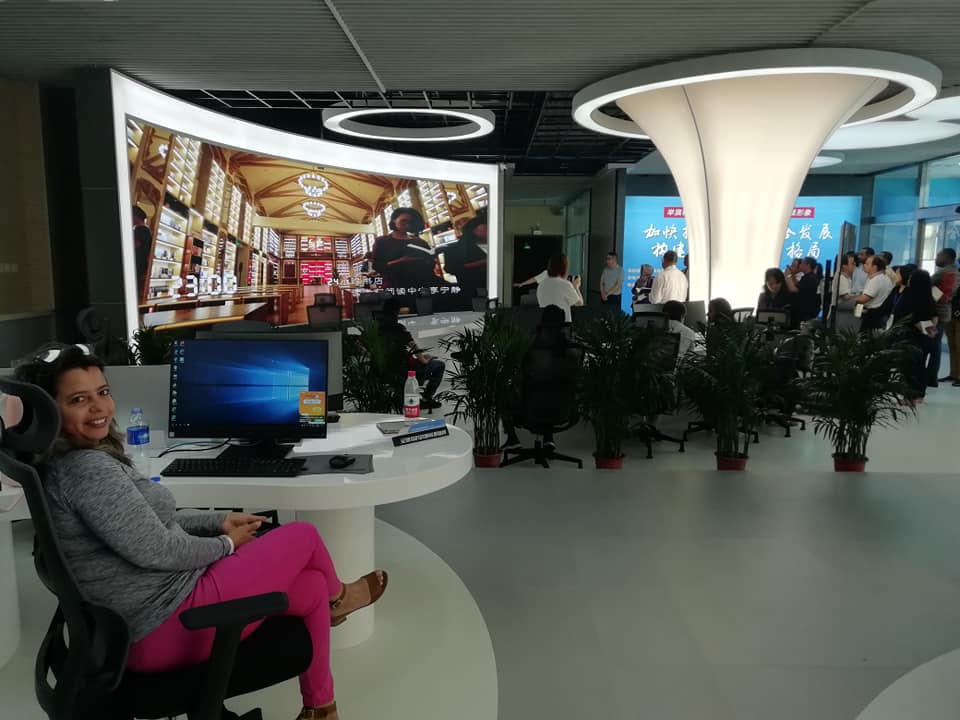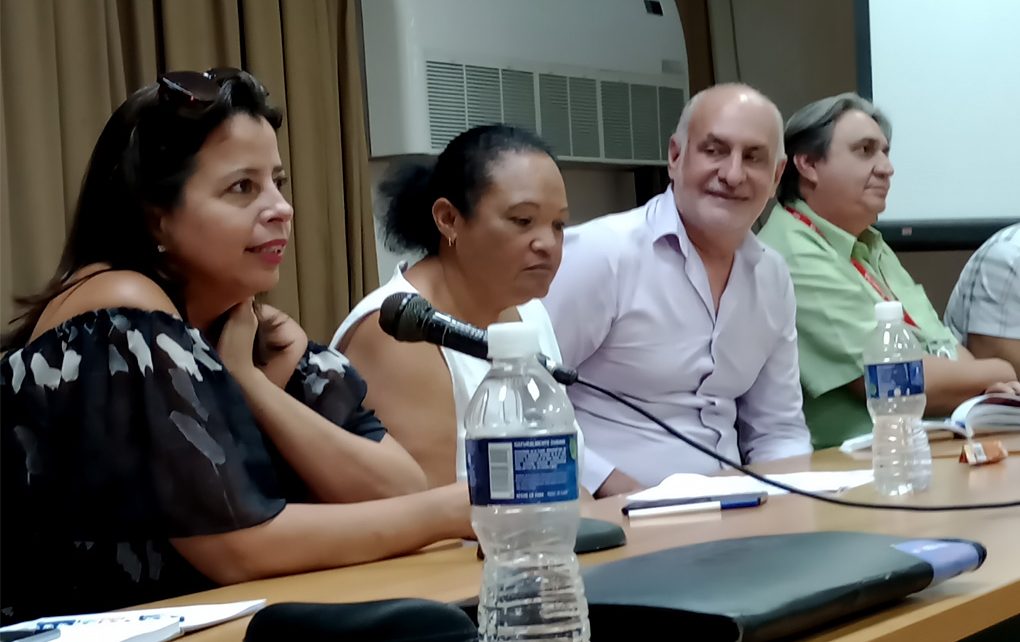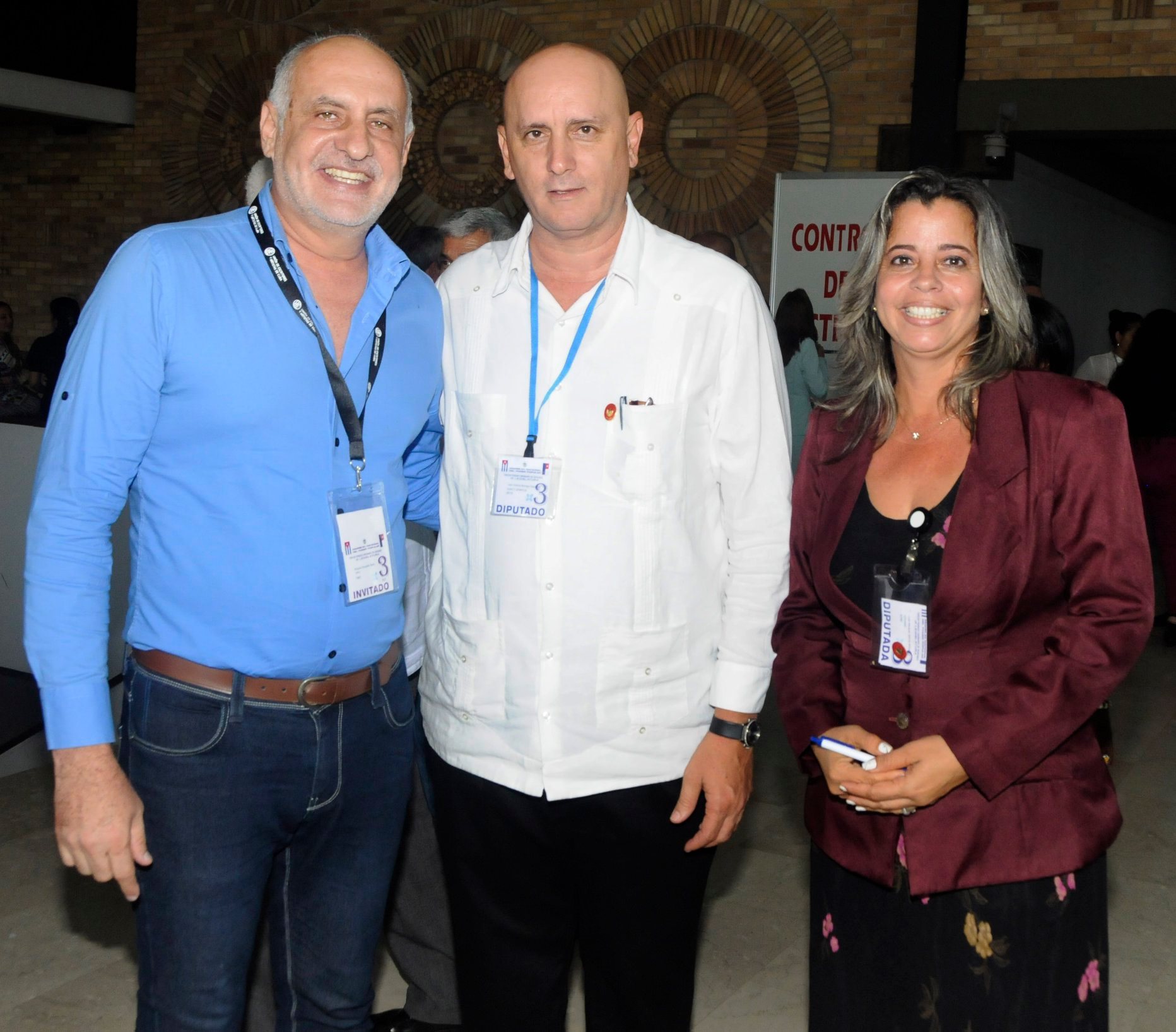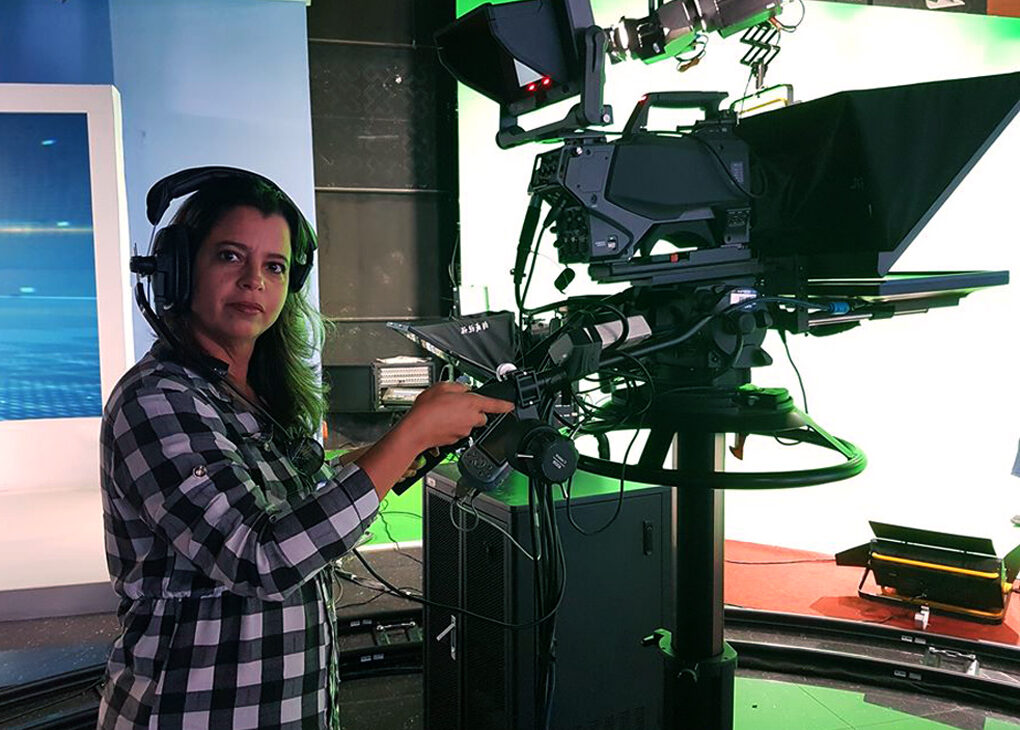Lizet Márquez Gómez seems to carry in her DNA the energy of the Santiago lands, where she was born. In her she shines the peculiar capacity to “give birth” efforts and will in the professional exercise, in her vocation to communicate, and to communicate well.
Graduated with a degree in Journalism from the Universidad de Oriente in 1995, she has a long relationship with the Cuban Television Information System (SITVC). She also has a recognized mastery of the narrative techniques of this medium to assume the production processes.
His intense service record proves the seriousness and social commitment with which he assumes the act of informing the public.
With great expertise as a reporter inside and outside the country, for years she was in charge of the SITVC correspondent in the province of Granma, and also carried out missions in Guatemala, Bolivia and Venezuela.
In the same way, in 2018 she assumed her responsibility as a deputy to the National Assembly for the municipality of Jiguaní in Granma, in the IX Legislature. This commission favored the opportunity to enrich her approach and perspectives of the issues that she usually works on.
Many other jobs related to the press —outside the television scene— have occupied a good part of his daily schedule. Among them, recently, she was elected as president of the Branch Delegation[i] of Television, of the Union of Journalists of Cuba.
But, above all, he loves his work in the audiovisual field. Thus, it is comfortable for him to talk about his practice and the importance of information for teleaudiences.
That is to say, the influence that this medium achieves, or not, as an entity that configures or determines a range of opinions by reflecting in its programming those problems that cross national life.
Because “television still monopolizes the listening of a large audience,” says Lizet. “Specifically, news programs continue to be the preference of those who seek to be officially updated.”
However, at the same time it recognizes that the target audience for this type of audiovisual program is not exactly young people.

When inquiring about whether immediacy on television imposes certain peculiarities that, on occasions, threaten the good management and quality of the content and the way in which the information reaches the receivers, Lizet adds that “the first thing is to have empathy with the public. Knowing how to put yourself in their place to find out about their information gaps, their needs for news updates.
“Immediacy does not affect the quality of the content on TV; She is affected by poor professional performance in any of the press media, which are no longer pure media, since they are all transversalized by the current ways of doing business with the arrival of new technologies. Everything depends on professionalism, not on the medium”.
Regarding journalistic specialization and the importance of sources, terms that are so widely advocated in the Cuban press, the journalist states that she does not believe that these days it works on television.

“Although there are certain issues that some colleagues prefer, feel attracted to, and are the ones who work best on them for years, the truth is that the professionals we have are insufficient so that they can dedicate themselves to only one sector or topic,” he asserts.
“The journalist must have such a preparation that allows him to address all topics, especially on television where the production routines are different from the rest of the media and work for dissimilar spaces, programs…”
Meanwhile, “sources are vital. You cannot build a good journalistic report without the timely contribution of various sources ”, he concluded.

[i] The branch delegations are made up of national media.
2023-06-06 17:33:14
#Lizet #Márquez #Gómez #Television #monopolizes #listening #large #audience #Cubaperiodistas

